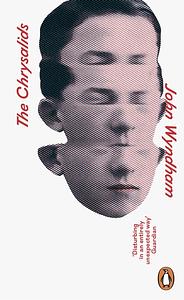Take a photo of a barcode or cover
adam_mcphee's Reviews (2.87k)
life continues, but time has somehow stopped
Good essays on John le Carre, Burial, The Shining, Junior Boys, Christopher Nolan's Inception, David Peace, Joy Division. All from a much-needed left perspective. Also a bunch of stuff on other music I wasn't familiar with. So I can't evaluate those essays, but I do have more music to look up now. In a weird way, there are some kinds of art that I've always enjoyed reading/hearing about more than actually experiencing. That seems to fit into the spirit of hauntology, I think.
Where is the 21st-century equivalent of Kraftwerk? If Kraftwerk’s music came out of a casual intolerance of the already-established, then the present moment is marked by its extraordinary accommodation towards the past. More than that, the very distinction between past and present is breaking down. In 1981, the 1960s seemed much further away than they do today. Since then, cultural time has folded back on itself, and the impression of linear development has given way to a strange simultaneity.
...
Producing the new depends upon certain kinds of withdrawal – from, for instance, sociality as much as from pre-existing cultural forms – but the currently dominant form of socially networked cyberspace, with its endless opportunities for micro-contact and its deluge of YouTube links, has made withdrawal more difficult than ever before. Or, as Simon Reynolds so pithily put it, in recent years, everyday life has sped up, but culture has slowed down.
Good essays on John le Carre, Burial, The Shining, Junior Boys, Christopher Nolan's Inception, David Peace, Joy Division. All from a much-needed left perspective. Also a bunch of stuff on other music I wasn't familiar with. So I can't evaluate those essays, but I do have more music to look up now. In a weird way, there are some kinds of art that I've always enjoyed reading/hearing about more than actually experiencing. That seems to fit into the spirit of hauntology, I think.
Spoiler
Consider the fate of the concept of ‘futuristic’ music. The ‘futuristic’ in music has long since ceased to refer to any future that we expect to be different; it has become an established style, much like a particular typographical font. Invited to think of the futuristic, we will still come up with something like the music of Kraftwerk, even though this is now as antique as Glenn Miller’s big band jazz was when the German group began experimenting with synthesizers in the early 1970s.Where is the 21st-century equivalent of Kraftwerk? If Kraftwerk’s music came out of a casual intolerance of the already-established, then the present moment is marked by its extraordinary accommodation towards the past. More than that, the very distinction between past and present is breaking down. In 1981, the 1960s seemed much further away than they do today. Since then, cultural time has folded back on itself, and the impression of linear development has given way to a strange simultaneity.
Spoiler
Could it be that neoliberal capitalism’s destruction of solidarity and security brought about a compensatory hungering for the well-established and the familiar? Paul Virilio has written of a ‘polar inertia’ that is a kind of effect of and counterweight to the massive speeding up of communication. Virilio’s example is Howard Hughes, living in one hotel room for 15 years, endlessly rewatching Ice Station Zebra. Hughes, once a pioneer in aeronautics, became an early explorer of the existential terrain that cyberspace will open up, where it is no longer necessary to physically move in order to access the whole history of culture. Or, as Berardi has argued, the intensity and precariousness of late capitalist work culture leaves people in a state where they are simultaneously exhausted and overstimulated. The combination of precarious work and digital communications leads to a besieging of attention....
Producing the new depends upon certain kinds of withdrawal – from, for instance, sociality as much as from pre-existing cultural forms – but the currently dominant form of socially networked cyberspace, with its endless opportunities for micro-contact and its deluge of YouTube links, has made withdrawal more difficult than ever before. Or, as Simon Reynolds so pithily put it, in recent years, everyday life has sped up, but culture has slowed down.
Spoiler
This raises the question of nostalgia again: is hauntology, as many of its critics have maintained, simply a name for nostalgia? Is it about pining for social democracy and its institutions? Given the ubiquity of the formal nostalgia I described above, the question has to be, nostalgia compared to what? It seems strange to have to argue that comparing the present unfavourably with the past is not automatically nostalgic in any culpable way, but such is the power of the dehistoricising pressures of populism and PR that the claim has to be explicitly made. PR and populism propagate the relativistic illusion that intensity and innovation are equally distributed throughout all cultural periods. ... Conversely, we are induced by ubiquitous PR into falsely overestimating the present, and those who can’t remember the past are condemned to have it resold to them forever. ... But we shouldn’t have to choose between, say, the internet and social security. One way of thinking about hauntology is that its lost futures do not force such false choices; instead, what haunts is the spectre of a world in which all the marvels of communicative technology could be combined with a sense of solidarity much stronger than anything social democracy could muster.Spoiler
A student of mine once wrote in an essay that they sympathise with Schopenhauer when their football team loses. But the true Schopenhauerian moments are those in which you achieve your goals, perhaps realise your long-cherished heart’s desire – and feel cheated, empty, no, more – or is it less? – than empty, voided. Joy Division always sounded as if they had experienced one too many of those desolating voidings, so that they could no longer be lured back onto the merry-go-round. They knew that satiation wasn’t succeeded by tristesse, it was itself, immediately, tristesse. Satiation is the point at which you must face the existential revelation that you didn’t want really want what you seemed so desperate to have, that your most urgent desires are only a filthy vitalist trick to keep the show on the road. If you ‘can’t replace the fear or the thrill of the chase’, why stir yourself to pursue yet another empty kill? Why carry on with the charade?Spoiler
‘I respect working hard but I dread a day job,’ asserts Burial. ‘Or a job interview. I’ve got a truant heart, I just want to be gone. I’d be in the kitchens, the corridors at work, and I’d be staring at the panels on the roof, clocking all the maintenance doors, dreaming about getting into the airducts. A portal. As a kid I used to dream about being put in the bins, escaping from things, without my mum knowing she’d put me out in the bins. So I’m in a black plastic bag outside a building and hearing the rain against it, but feeling all right, and just wanting to sleep, and a truck would take me away.’ A too quick psychoanalytic reading would hear this as a thinly coded wish to return to the womb – and Burial’s warm bass certainly feels enwombing – but that would be to ignore the desire to flee that is also driving this fantasy. Burial wants out, but he cannot positively characterise what lies beyond. ‘We all dream about it,’ he says. ‘I wish something was there. But even if you fight to see it, you never see anything. You don’t have a choice. You’d be on the way to a job, but you’re longing to go down this other street, right there, and you walk past it. No force on Earth could make you go down there, because you’ve got to traipse to wherever. Even if you escape for a second, people are on your case, you can’t go down old Thames side and throw your mobile in.’Spoiler
Confronted with capital’s intense semiotic pollution, its encrustation of the urban environment with idiotic sigils and imbecilic slogans no-one – neither the people who wrote them nor those at whom they are aimed – believes, you often wonder: what if all the effort that went into this flashy trash were devoted to a public good? If for no other reason, Ghost Box is worth treasuring because they make us pose that question with renewed force.Spoiler
Even the most apparently uncomplicated calls to enjoyment can’t fully suppress a certain sadness. Take Katy Perry’s ‘Last Friday Night’. On the face of it, the track is a simple celebration of pleasure (‘Last Friday night/ Yeah we maxed our credit cards/ And got kicked out of the bar’). Yet it’s not hard to hear something Sisyphean, something purgatorial, in the song’s evocation of a (not so) merry-go-round of pleasure that Perry and her friends can never get off: ‘Always say we’re gonna stop/ This Friday night/ Do it all again…’ Played at half-speed, this would sound as bleak as early Swans. David Guetta’s ‘Play Hard’ calls up a similarly interminable repetition. Pleasure becomes an obligation that will never let up – ‘us hustler’s work is never through/ We work hard, play hard’ – and hedonism is explicitly paralleled with work: ‘Keep partyin’ like it’s your job’. It’s the perfect anthem for an era in which the boundaries between work and non-work are eroded – by the requirement that we are always-on (that, for instance, we will answer emails at any hour of the day), and that we never lose an opportunity to marketise our own subjectivity. In a (not at all trivial) sense, partying is now a job. Images of hedonistic excess provide much of the content on Facebook, uploaded by users who are effectively unpaid workers, creating value for the site without being remunerated for it. Partying is a job in another sense – in conditions of objective immiseration and economic downturn, making up the affective deficit is outsourced to us.Spoiler
As Bryars points out in his sleevenotes, Marconi had conceived of telegraphy as a spectral science. He ‘became convinced that sounds once generated never die, they simply become fainter and fainter until we no longer perceive them. Marconi’s hope was to develop sufficiently sensitive equipment, extraordinarily powerful and selective filters I suppose, to pick up and hear these past sounds. Ultimately, he hoped to be able hear Christ delivering the Sermon on the Mount.’
Mask up and read this!
A history of the movement known as Antifa from the Dreyfus Affair to just before Charlottesville, plus a rundown of the justifications for it (with a whole chapter debunking the free speech myths that surrounding the fight) , and a look at what tactics/strategy work best.
Book provides these five historical lessons for Anti-Fascists:
1. FASCIST REVOLUTIONS HAVE NEVER SUCCEEDED. FASCISTS GAINED POWER LEGALLY.
2. TO VARYING DEGREES, MANY INTERWAR ANTI-FASCIST LEADERS AND THEORISTS ASSUMED THAT FASCISM WAS SIMPLY A VARIANT OF TRADITIONAL COUNTERREVOLUTIONARY POLITICS. THEY DID NOT TAKE IT SERIOUSLY ENOUGH UNTIL IT WAS TOO LATE.
3. FOR IDEOLOGICAL AND ORGANIZATIONAL REASONS, SOCIALIST AND COMMUNIST LEADERSHIP WAS OFTEN SLOWER TO ACCURATELY ASSESS THE THREAT OF FASCISM, AND SLOWER TO ADVOCATE MILITANT ANTI-FASCIST RESPONSES, THAN THEIR PARTIES’ RANK-AND-FILE MEMBERSHIP.
4. FASCISM STEALS FROM LEFT IDEOLOGY, STRATEGY, IMAGERY, AND CULTURE.
5. IT DOESN’T TAKE THAT MANY FASCISTS TO MAKE FASCISM.
A history of the movement known as Antifa from the Dreyfus Affair to just before Charlottesville, plus a rundown of the justifications for it (with a whole chapter debunking the free speech myths that surrounding the fight) , and a look at what tactics/strategy work best.
Book provides these five historical lessons for Anti-Fascists:
1. FASCIST REVOLUTIONS HAVE NEVER SUCCEEDED. FASCISTS GAINED POWER LEGALLY.
2. TO VARYING DEGREES, MANY INTERWAR ANTI-FASCIST LEADERS AND THEORISTS ASSUMED THAT FASCISM WAS SIMPLY A VARIANT OF TRADITIONAL COUNTERREVOLUTIONARY POLITICS. THEY DID NOT TAKE IT SERIOUSLY ENOUGH UNTIL IT WAS TOO LATE.
3. FOR IDEOLOGICAL AND ORGANIZATIONAL REASONS, SOCIALIST AND COMMUNIST LEADERSHIP WAS OFTEN SLOWER TO ACCURATELY ASSESS THE THREAT OF FASCISM, AND SLOWER TO ADVOCATE MILITANT ANTI-FASCIST RESPONSES, THAN THEIR PARTIES’ RANK-AND-FILE MEMBERSHIP.
4. FASCISM STEALS FROM LEFT IDEOLOGY, STRATEGY, IMAGERY, AND CULTURE.
5. IT DOESN’T TAKE THAT MANY FASCISTS TO MAKE FASCISM.
The series has a fantastic premise, but a less-than-stellar execution of it. A lot of ideas don't get the fleshing out they deserve, and as a result the authors come off a bit naive in their considerations of them. On the other hand, it's just reached the part of the premise that I'm interested in. And the characters, who have always seemed a bit one dimensional to me, are starting to benefit from that Dickens-George RR Martin effect, where quantity of character starts to make up for lack quality, for a lack of depth in the writing, and where an almost cartoonish consistency starts to pay off.
At first the series struck me as being a little bit less than imaginative about the future of humanity. Who wants to go to space to build more status quo space societies, with little real deviation from our own world (and where seemingly every other character has a malthusian outlook)? At one point the preacher character (ugh) even addresses one of my complaints of the series in a metaphor, when she points out that an infant is more than just two sets of parental dna. Which is what the human cultures feel like -- two already existing things mixed together that have so far failed to create something new (people from India who act like Texans, signs of human speciation playing out like some kind of dumb conservative talking points about political correctness). But I'm starting to think that this was just a jumping off point, and that these considerations will soon be addressed.
In short, the series is starting to win me over.
At first the series struck me as being a little bit less than imaginative about the future of humanity. Who wants to go to space to build more status quo space societies, with little real deviation from our own world (and where seemingly every other character has a malthusian outlook)? At one point the preacher character (ugh) even addresses one of my complaints of the series in a metaphor, when she points out that an infant is more than just two sets of parental dna. Which is what the human cultures feel like -- two already existing things mixed together that have so far failed to create something new (people from India who act like Texans, signs of human speciation playing out like some kind of dumb conservative talking points about political correctness). But I'm starting to think that this was just a jumping off point, and that these considerations will soon be addressed.
In short, the series is starting to win me over.
Nice. The only book I've ever read set in Labrador. And it's about telepaths! Though there's probably a bunch of Farley Mowat books.
Afrofuturism set in Edmonton. Very cool.
Maybe the first comic book I've ever read? This or the Spider-Man in Toronto one.








